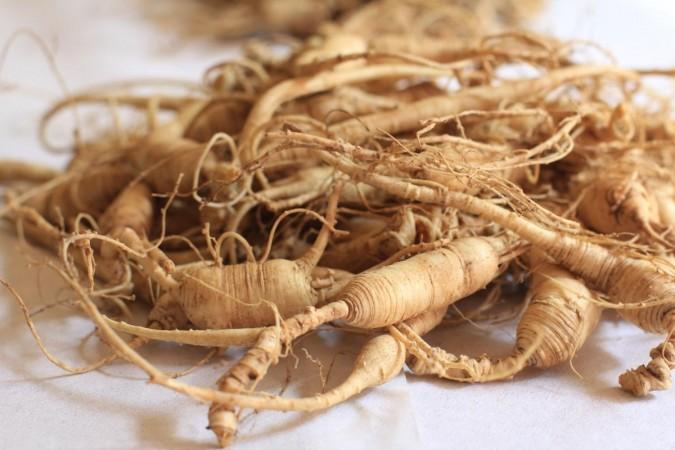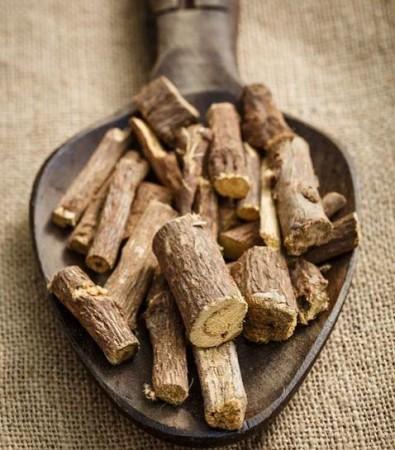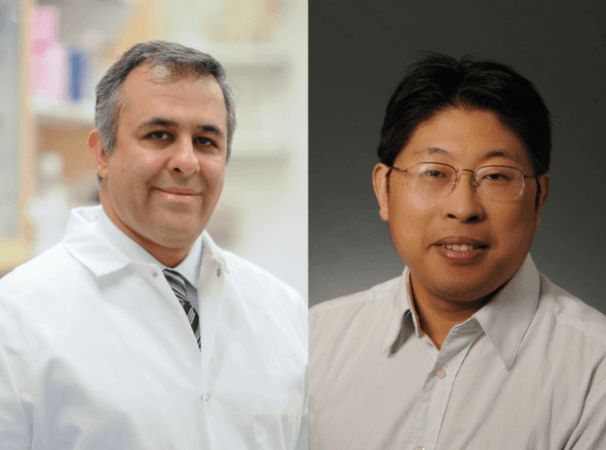With the SARS-CoV-2 coronavirus mutating at an accelerated pace, treatments and vaccines developed against the original virus are proving ineffective against several of its new variants. Therefore, the identification of an existing compound or medication—that has a neutralizing effect on a broad spectrum of variants—may help control the COVID-19 pandemic. Now, a new study has reported that an easily available herbal formulation was found to successfully inhibit the novel coronavirus.
According to scientists from George Mason University, the over-the-counter herbal drink called Respiratory Detox Shot (RDS) was found to neutralize infectious wild-type SARS-CoV-2, along with several of its pseudovirus forms derived from its variants including variants of concern (VOCs). RDS was also found to inhibit other equally lethal respiratory viruses such as influenza and SARS-CoV. The study was published in the journal Cell & Bioscience.
"This study points to the possibility of using a readily available, over-the-counter herbal beverage to provide protection against SARS-CoV-2 and influenza A infections. It will also be quite interesting to see if RDS shows activity against other respiratory viruses," said Dr. Ali Andalibi, senior associate dean, Mason's College of Science, in a statement.
Seeking A Herbal Solution

RDS is an over-the-counter product that is used for the maintenance of the health of the human respiratory system. It comprises nine herbal ingredients, all of which are approved by the FDA. The are Lonicera japonica (honeysuckle flower), Forsythia suspensa (Weeping Forsythia), Panax ginseng (Ginseng Root), Schizonepeta tenuifolia (Schizonepeta Herb), Scrophularia ningpoensis (Chinese figwort), Prunus armeniaca (Apricot), Polistes mandarinus saussure (honeycomb), Gleditsia sinensis (Chinese honey locust), and Glycyrrhiza uralensis (Chinese liquorice).
All these ingredients have been traditionally employed in Chinese herbal medicines to manage lung diseases and inflammation. In total, 1071 known chemical constituents were contained within the nine herbs. For the study, the team examined the function of extracts from nearly 40 medicinal herbs using human lung cells and SARS-CoV-2 pseudoviruses. RDS was also screened for potential activity against the novel coronavirus. Cells were pretreated with diluted RDS and were then infected in the presence of RDS for around four to six hours.

In order to infect the cells, the researchers used lenti-SARS-CoV, lenti-SARS-CoV-2, and hybrid alphavirus-SARS-CoV-2 (Ha-CoV-2) pseudoviruses; all of which cannot replicate post-infection They also used the original SARS-CoV-2 and derived Ha-CoV-2 variants including from VOCs—P.1 (Brazil, B.1.351 (South Africa), and B.1.1.7 (UK). Other derived Ha-CoV-2 variants used were B.1.1.207, B.1.1.298, B.1.2, B.1.258, B.1.429, and B.1.494.
Effective Against Multiple Coronaviruses
Following infection, the cells were cultured in RDS' absence. The cells were then quantified by the authors in order to ascertain whether the viral infection was blocked at 48 and 72 hours. Next, the team verified whether RDS had any in vitro efficacy against the tricky SARS-CoV-2 virus.
Through their analysis, the scientists found that RDS contained powerful ingredients that could impede the infectivity of not just one but three coronaviruses—SARS-CoV, SARS-CoV-2, and influenza A virus. Importantly, the inhibiting effect was observed even at very low doses. In addition to this, the team also demonstrated that RDS was efficacious in vitro against several variants of the SARS-CoV-2.

Buoyed by the promising results of the in vitro study, the team has already commenced in vivo animal studies in order to glean whether RDS can be utilized as a treatment against COVID-19. The in vivo studies involve the testing of RDS' effect in a transgenic mice model infected with the SARS-CoV-2 virus.
If the results of the animal study prove viable, FDA approval to conduct human clinical trials may be sought. "If it proves effective in vivo, it should be a treatment for COVID-19 that is easy to administer. That's a big plus," expressed Dr. Ramin Hakami, lead author of the study.

















